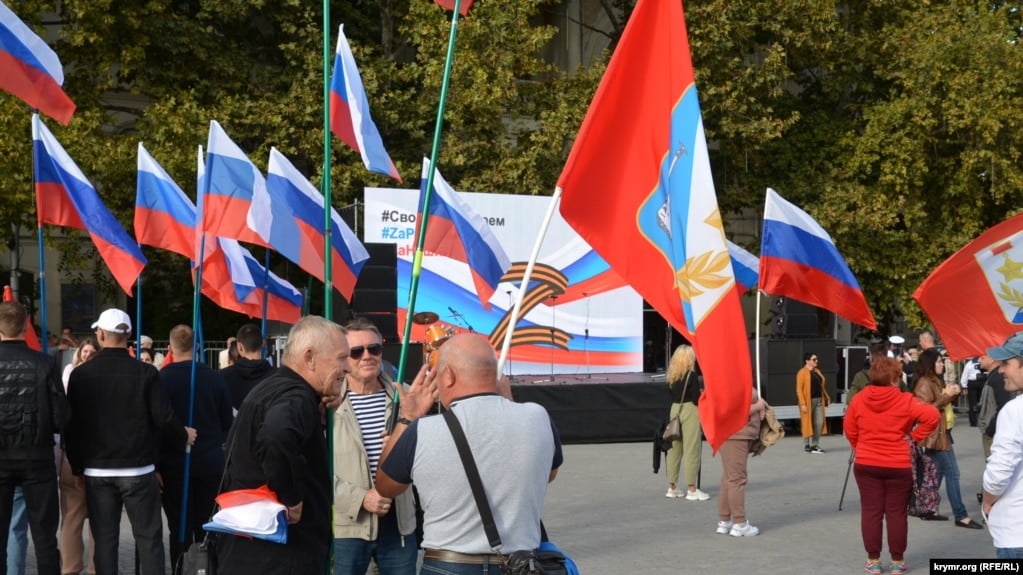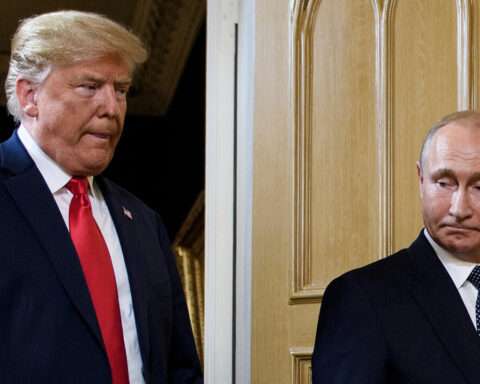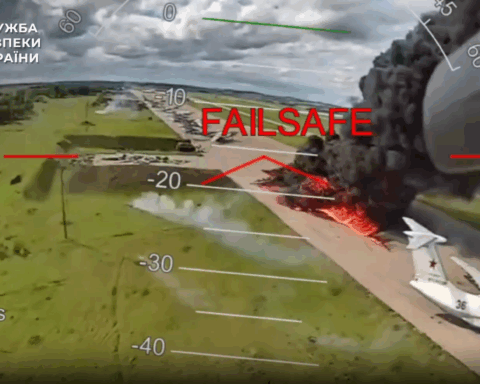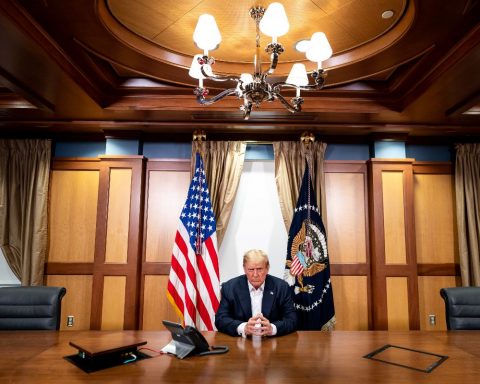A rally and concert is held on September 23 in support of the Russian-organized referendums in the occupied areas of Ukraine in Sevastopol, Crimea, where Moscow staged a similar vote in 2014 following its seizure of the region by force from Ukraine.
A rally and concert is held on September 23 in support of the Russian-organized referendums in the occupied areas of Ukraine in Sevastopol, Crimea, where Moscow staged a similar vote in 2014 following its seizure of the region by force from Ukraine.
A second day of so-called referendums on joining the Russian Federation is being held in four Ukrainian regions partially occupied by Moscow — votes dismissed as a sham by Ukraine, the West, and the United Nations because they are illegal under international law.
The vote in Russian-controlled areas of Luhansk, Donetsk, Kherson, and Zaporizhzhya regions being held in the midst of the largest conflict in Europe since the end of World War II runs counter to the UN Charter and takes place amid claims by some local officials that voters were being threatened and intimidated.
There are no independent observers, and many of the prewar inhabitants have fled. The four regions represent around 15 percent of Ukraine, or an area the size of Hungary.
The Ukrainian military General Staff said on September 24 that “employees of the ‘election commissions,’ accompanied by armed servicemen of the military of the Russian federation” were collecting signatures of local residents directly at their homes.
President Volodymyr Zelenskiy urged the world to condemn “pseudo-referendums” meant to annex Ukrainian lands.
“The world will react absolutely justly to pseudo-referendums — they will be unequivocally condemned,” Zelenskiy said in his nightly address to the nation on September 23.
In Washington, U.S. President Joe Biden harshly condemned the move and warned that more sanctions will follow for Moscow.
“Russia’s referenda are a sham — a false pretext to try to annex parts of Ukraine by force in flagrant violation of international law,” Biden said on September 23.
“We will work with our allies and partners to impose additional swift and severe economic costs on Russia,” he added in a statement.
White House press secretary Karine Jean-Pierre told reporters that the United States was prepared to level additional economic penalties on Russia, in lockstep with allies, if Moscow attempted to annex more Ukrainian territory.
The vote hastily announced this week as Russia decreed a partial mobilization came as Ukrainian forces said they were clawing back territory from Moscow-backed separatists in the very territories Russia wants to annex.
Ukrainian officials said people were forbidden from leaving some occupied areas until the five-day vote was over.
Polling stations will only operate on the fifth day, September 27, with officials citing security reasons.
The Ukrainian General Staff said in a Facebook post that on the ground, Russia “has not stopped striking the civilian infrastructure and the homes of civilians.”
It added that, during the night, the city of Mykolayiv was subjected to rocket fire from Russian occupiers, but information on civilian casualties was not initially available.
Serhiy Hayday, Ukraine’s regional governor in Luhansk, said in a post on Telegram that Russian authorities banned people from leaving for several days to ensure votes.
“We have reports from people that the so-called ‘voting commissions’ coming to residences to record votes are accompanied by people with weapons…. If the doors to the apartments are not opened, they threaten to break them down,” he said, adding that anyone voting “No” was written down in a ledger by the commissioners.
In Kherson, Serhiy Khlan, a Ukrainian deputy in the regional council, told RFE/RL on September 23 that the polling stations opened by the Russian-appointed officials in the region had remained mostly empty, prompting them to start going house-to-house to collect votes “at gunpoint.”
The referendums have been condemned as an illegitimate, choreographed precursor to illegal annexation.
The move comes as Russian President Vladimir Putin announced a partial military mobilization on September 21 amid apparent heavy personnel losses in the unprovoked invasion of Ukraine that Moscow started in February.
Zelenskiy urged Ukrainians in occupied regions to undermine the referendums and to share information about the people conducting “this farce” and called on residents to try to avoid Moscow’s mobilization.
“Hide from the Russian mobilization by any means,” Zelenskiy said. “Avoid conscription letters. Try to get to the free territory of Ukraine.”
The mobilization announcement has triggered an exodus of able Russian men scrambling to leave the country to avoid being drafted, with traffic at frontier crossings with Finland and Georgia surging and prices for air tickets from Moscow sky-rocketing.
The Kremlin has also shown little desire to mask its true goal over the balloting, with spokesman Dmitry Peskov telling reporters in Moscow on September 23 that he was “convinced” Russia will proceed “quite quickly” with taking over the regions if the vote is successful.
The incorporation of the four areas would allow Moscow to portray any moves to retake them as an attack on Russia itself — potentially using that to justify even a nuclear response.
Ukraine says it will never accept Russian territorial takeovers while NATO chief Jens Stoltenberg said the alliance will ramp up its help for Kyiv in response to the “sham” referendum.
The Group of Seven industrialized economies on September 23 condemned the referendums as a “sham” with “no legal effect or legitimacy.”
“We will never recognize these referenda, which appear to be a step toward Russian annexation, and we will never recognize a purported annexation if it occurs,” the G7 leaders said in a statement.
Moscow has deported about 1.6 million Ukrainians from those regions to Russia, according to Western estimates, while also busing Russian citizens into Ukrainian territory.
It has also seized the personal and biometric data of hundreds of thousands of Ukrainian citizens at so-called “filtration camps,” opening the door, experts say, to ballot manipulation.
Nikolai Bulayev, the deputy chairman of Russia’s Central Election Commission, said he expected “hundreds of thousands” of Ukrainians currently in Russia to take part in the referendum.
Russia has little history of holding free and fair elections, with ballot stuffing, voter intimidation, outright fraud, and media manipulation common practices. It held a similar illegal vote in 2014 after occupying Ukraine’s Crimea region. Very few countries have accepted the results of the vote.






